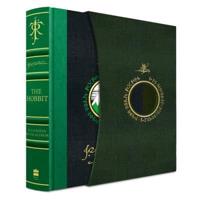Publisher's Synopsis
Leviathan or The Matter, Forme and Power of a Common-Wealth Ecclesiasticall and Civil-commonly referred to as Leviathan-is a book written by Thomas Hobbes (1588-1679) and published in 1651 (revised Latin edition 1668).[1][3][4] Its name derives from the biblical Leviathan. The work concerns the structure of society and legitimate government, and is regarded as one of the earliest and most influential examples of social contract theory.[5] Leviathan ranks as a classic Western work on statecraft comparable to Machiavelli's The Prince. Written during the English Civil War (1642-1651), Leviathan argues for a social contract and rule by an absolute sovereign. Hobbes wrote that civil war and the brute situation of a state of nature ("the war of all against all") could only be avoided by strong, undivided government. Part I: Of ManHobbes begins his treatise on politics with an account of human nature. He presents an image of man as matter in motion, attempting to show through example how everything about humanity can be explained materialistically, that is, without recourse to an incorporeal, immaterial soul or a faculty for understanding ideas that are external to the human mind. Hobbes proceeds by defining terms clearly and unsentimentally. Good and evil are nothing more than terms used to denote an individual's appetites and desires, while these appetites and desires are nothing more than the tendency to move toward or away from an object. Hope is nothing more than an appetite for a thing combined with opinion that it can be had. He suggests the dominant political theology of the time, Scholasticism, thrives on confused definitions of everyday words, such as incorporeal substance, which for Hobbes is a contradiction in terms.Hobbes describes human psychology without any reference to the summum bonum, or greatest good, as previous thought had done. Not only is the concept of a summum bonum superfluous, but given the variability of human desires, there could be no such thing. Consequently, any political community that sought to provide the greatest good to its members would find itself driven by competing conceptions of that good with no way to decide among them. The result would be civil war. .........Thomas Hobbes ( 5 April 1588 - 4 December 1679), in some older texts Thomas Hobbes of Malmesbury, was an English philosopher who is considered one of the founders of modern political philosophy. Hobbes is best known for his 1651 book Leviathan, which expounded an influential formulation of social contract theory. In addition to political philosophy, Hobbes also contributed to a diverse array of other fields, including history, jurisprudence, geometry, the physics of gases, theology, ethics, and general philosophy.Though on rational grounds a champion of absolutism for the sovereign, Hobbes also developed some of the fundamentals of European liberal thought: the right of the individual; the natural equality of all men; the artificial character of the political order (which led to the later distinction between civil society and the state); the view that all legitimate political power must be "representative" and based on the consent of the people; and a liberal interpretation of law that leaves people free to do whatever the law does not explicitly forbid. His understanding of humans as being matter and motion, obeying the same physical laws as other matter and motion, remains influential; and his account of human nature as self-interested cooperation, and of political communities as being based upon a "social contract" remains one of the major topics of political philosophy.








